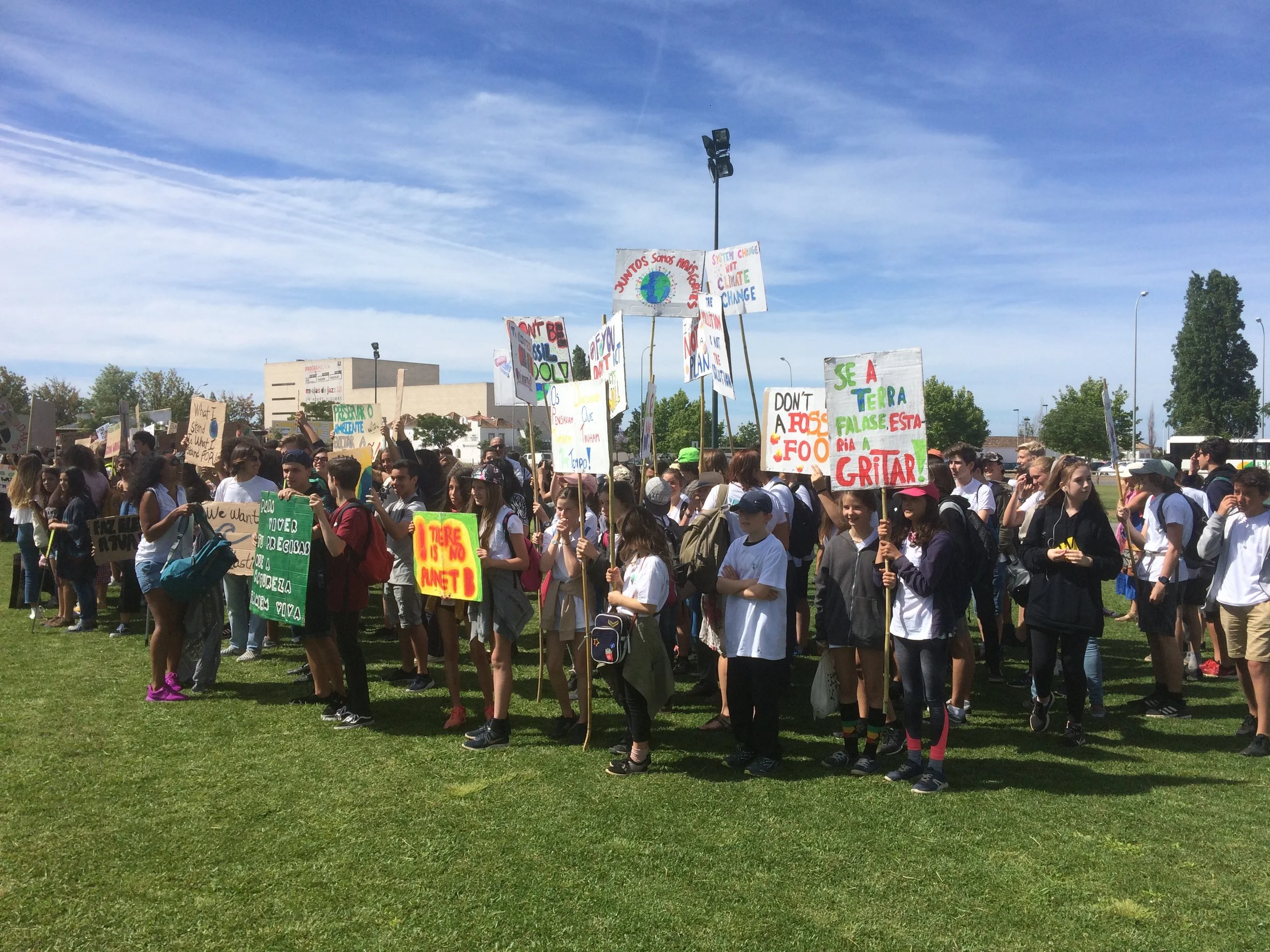Kids March for The Planet
In a school where “respect” is the only rule, it is not surprising that the children of Aljezur International School took part in the recent climate change student march in Faro on Friday 24th May.
The students were calling world leaders to respect the planet and change legislation as part of the international student movement #SchoolStrike4Climate and #FridaysForFuture. The student climate campaign is inspired by Sweden's Greta Thunberg, 16, who last year launched a boycott of classes to demand urgent action from the Swedish parliament to halt climate change, a protest that has quickly spread worldwide.
On 15th March this year, an estimated 1.4 million students in 112 countries around the world joined her call in striking and protesting.
A similar event involving students from 125 countries took place on 24th May, and school directors Karen Whitten and Sílvia Catarino were happy for their students to participate. “The majority of our students have a genuine concern about the planet,” Karen told us. “They can see changes in the climate from little things like having to water the school vegetable garden more now than they have done in the past.”
Year 10 student, Pedro Rocha aged 14, initiated the school ́s participation in the march after seeing the campaign on Instagram. He wanted to do something about it and asked Sílvia and Karen if Aljezur International could take part.
The school’s curriculum is very much focused on the environment. “We try to have lessons outdoors as much as possible, so the children are more in touch with the natural environment,” Sílvia says. “We’ve found that including agriculture lessons in the timetable, thereby demonstrating the food chain from field to fork, has given our students a greater awareness of the impact our actions as human beings can have.”
Karen believes there has been too much apathy amongst the young population in recent years. “When I was a student in the 80s we frequently went on marches. We weren't militant but it just felt like we had a voice. I was happy for our students to experience a march, the feeling of people power and of being heard, and we knew this would be a safe environment to do so.”
All students from the school participated and Karen feels that if just one of them goes on to make a difference it will have been worth it. The march started near the Forum shopping centre and they joined students from Portuguese state schools throughout the Algarve to walk over 2 km through the streets of Faro with police escorts. They also appeared on local and national news.
I chat with a group of students who attended the march to see what the kids understand by climate change. Their knowledge is impressive; they know about the effects of different forms of pollution and many of the negative environmental impacts caused by present day lifestyles. They tell me it makes them very sad.
“Raise your voice not the sea level” is what Vasant aged 10 wrote on his banner. His knowledge of the environment is practically encyclopaedic, and he has obviously read many books on the subject. There is a concern among the youngsters about the number of animal species becoming extinct that they will never get to see in the wild, like the blue parrot and river dolphin.
They also understand that pollution and plastic can get into their food chain and this has made some of them make the decision to become vegetarian.
Teenager Christian tells me that 7 million hectares of rainforest are lost annually while agricultural land expands by 6 million hectares per year, a fact he found himself on the internet. Most of the students also follow environmental social media groups.
Part of the student campaign is stopping the use of plastics in schools and the students at Aljezur all use re͢͢͢fillable water bottles and know about the dangers of plastic straws.
The kids tell me that one of the organisers of the Faro march had lost her voice because she was shouting so loudly into a megaphone. A few of the Aljezur students, including Vasant and Luna, also spoke through the megaphone to the crowd at the final rally point.
Luna told the crowd, “Everyone says I am too small to make a change but if we all think like that nothing will happen and we should do something today otherwise tomorrow it will be too late.”
Vasant said, “Why do we do bad things to hurt the planet? It is dying so please help us save it.”
I ask Karen what impact children can have. “They are the leaders of tomorrow. Our job is to equip them with the knowledge and confidence to effect change. During a class discussion about climate change last week, one of the kids looked me in the eyes and told me that they will have to try to clean up the mess my generation has created. That was very humbling,” says Karen.
In the population of 80 students at Aljezur International, there are 26 different nationalities and so the school is a living demonstration of how diverse nationalities can unite to make a difference. There is no Planet B.
https://greveclimaestudantil.wixsite.com/greveclimaticapt


